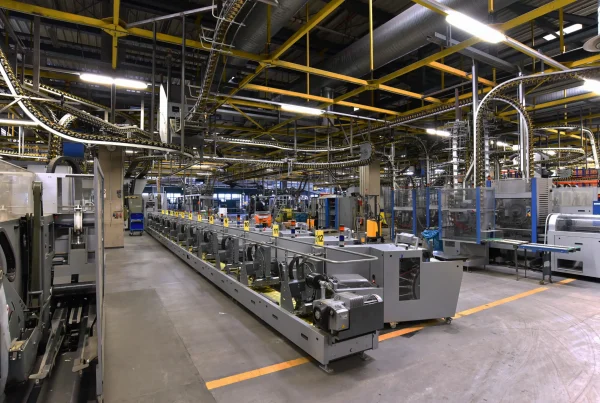Industry Outlook
The outbreak of the COVID-19 pandemic had a positive effect on M&A activity in the global Healthcare sector. After an initial slowdown in 2020, 2021 saw record activity levels with momentum carrying through into the first half of 2022. Deal activity slowed down significantly during the second half of the year, completing 19% less transactions than the previous six months. As a result, global deal activity decreased by 26% in 2022, compared to the year before.
Despite the slowdown in H2 deal volumes, moderate deal activity is expected in 2023 as over 750 transactions were announced during the year. Private equity’s (“PE”) involvement in the industry presents another positive consideration. During 2022, Private Equity firms accounted for 22% of all completed transactions in the healthcare sector. This was in line with the 5-year average of 23% indicating that the sector remains attractive to professional investors with continued investment expected throughout 2023.
2022 was a good year for healthcare mega-deals (transactions with values above R10 billion). The year saw a total of 73 mega-deals completed, amounting to over R3.6 trillion with the bulk of transactions occurring in the USA (45), the UK (5), and China (4).
Global M&A transactions

Notable global M&A deals

Oracle Corporation’s acquisition of Cerner Corporation during June for $29.3 billion.
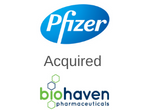
Pfizer Inc’s acquisition of Biohaven Pharmaceuticals during October for $11.7 billion.
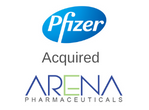
Pfizer Inc’s acquisition of Arena Pharmaceuticals during March for $6.2 billion.
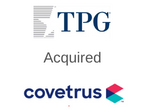
TPG Capital Partners led acquisition of Covetrus Inc. during October for $3.5 billion.
M&A activity in the African Landscape with a focus on South Africa
African M&A transactions
South African M&A transactions by sub-sector
The African Healthcare sector proved very resilient compared to the rest of the world. While global M&A activity declined by 26% during 2022 compared to the year before, African deal volumes increased by 25% over the same period. Pharmaceuticals & Life Sciences and Healthcare Services proved to be relatively strong, fuelling the sector’s activity – collectively accounting for 95% of total deals concluded in Africa and 100% of total deals concluded in South Africa during 2022.
In South Africa, Pharmaceuticals & Life Sciences accounted for 57% of completed transactions during the year as 8 deals were concluded (2021: 5 transactions). Healthcare Services contributed the remaining 43% with 6 deals concluded, up from 3 the year before.
Private equity’s involvement in the South African healthcare sector decreased during 2022, accounting for only 15% of completed transaction, falling short of the industry’s 5-year average (23%). At the same time, cross-border transactions increased by 50% compared to the year before. This was largely driven by an increase in Pharmaceutical related cross-border transactions.
Notable South African M&A transactions
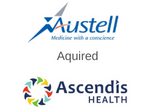
Ascendis Health’s disposal of Ascendis Pharma to Austell Pharma during October for R432 million, to improve Ascendis Health’s balance sheet and reduce debt.
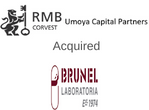
RMB Corvest and Umoya Capital Partners’ acquisition of Brunel Laboratoria during January, extending RMB Corvest’s portfolio in the fast-growing healthcare sector.
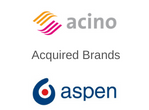
Acino Pharma’s acquisition of select brands from Aspen Pharmacare during March for R1.8 billion, strengthening Acino’s footprint in South Africa by expanding their offering in the select therapeutic segments.
Key themes and trends driving M&A activity in South Africa
The Russia-Ukraine conflict forced many pharmaceutical companies to reassess the risks and dependencies within their global supply chains. We expect to see an uptick in vertical M&A deals as these companies seek to regain control over their supply chains.
Large pharmaceutical companies are continuing to optimise their portfolios and divest non-core assets. We expect higher interest rates to put additional pressure on these companies to divest and free up capital likely to be used for future acquisitions.
Healthcare Service providers are expected to continue making capability-driven acquisitions of niche services providers to expand their existing service offering.
COVID-19 initiated expansion plans, primarily funded through debt, are coming under increased pressure as higher interest rates increase the cost of servicing debt. Companies unable to refinance are expected to restructure, increasing the prevalence of distressed M&A deals in this space.
Demand for access to real-time data from both patients and healthcare providers are expected to fuel transactions in the Healthcare Technology space.
Pharmaceutical researchers and developers are expected to make increasing use of technology in the drug discovery process. Examples include, automation, nanotechnology in targeted therapy, nanofluidics, imaging, software, and assay technologies. Companies who do not have access to these capabilities are likely to turn to capability-driven acquisitions.
M&A activity in the South African healthcare sector has steadily trended upward in recent years with 2023 being no different. We expect M&A activity in 2023 to continue building on the momentum seen in 2022, as demand from strategic acquirers, both domestic and international, intensifies.



